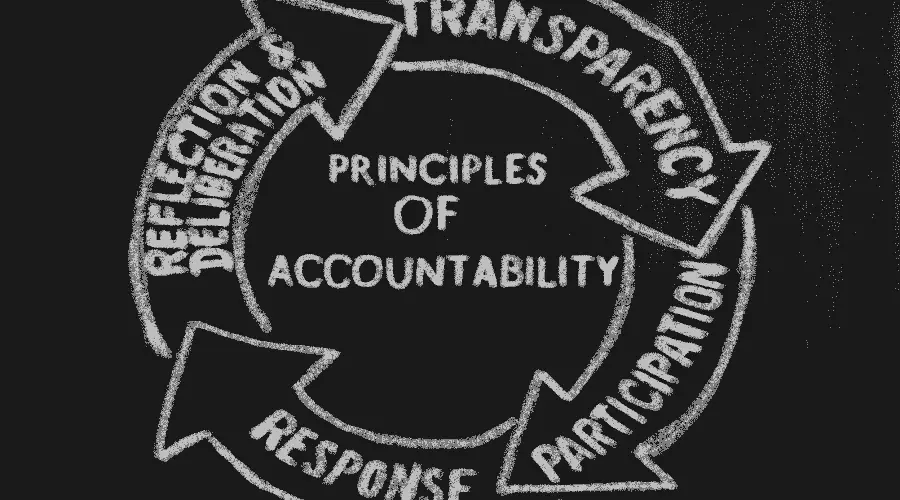Becoming a Chartered Accountant is no easy task but the ICAS qualification is a great place to start. There are plenty of exams and a lot of studying, but what you probably want to know is just how hard the ICAS qualification is.
The ICAS qualification is very hard, it requires a serious amount of studying to handle the volume of work. The difficulty is comparable to other Accountancy qualifications like the ACA or ACCA. Don’t let this stop you though, recent pass rates show that completing the qualification is very achievable.
It doesn’t matter if you are enrolled in the ICAS qualification or debating whether you want to take the qualification. I will be breaking down how hard it is, which of the exams is the hardest, and which careers you could progress into.
How hard is the ICAS Accountancy Qualification?
The ICAS qualification is split into three main sections that cover a total of 13 examinable subjects.
The 3 main sections are:
- Test of competence (TC)
- Test of professional skills (TPS)
- Test of professional expertise (TPE)
The test of competence is the first section and will introduce you to the basics and core knowledge you will need for the rest of the course. The topics in this section are based on general business and accounting areas that will be built on throughout the course. This level consists of 6 exams covering the following areas:
- Assurance & Reporting
- Business Acumen
- Finance
- Financial Accounting
- Management Information & Technology
- Principles of Taxation
The test of professional skills is a more in-depth section where you will need to apply the knowledge you gained in the original test of competence section. This section will introduce you to new concepts and more complex ideas building on the topics from section 1.
This section includes 5 exams covering the following areas:
- Strategic Finance & Modelling
- Assurance & Data
- Financial Reporting
- Business Tax
- Risk & Technology
Finally, the test of professional expertise has 2 main areas these are:
- Public trust and ethics
- A multi-disciplinary case study, advising on a complex business scenario
This section differs from the previous two as it involves more than just sitting exams. Firstly, students will need to complete the public trust and ethics exam, which is a recurring topic taught throughout the full course but is only assessed in the final section.
On top of this students need to complete a multi-disciplinary case study, advising on a complex business scenario. Students need to take the time to complete this case study to finish the course.
As well as this students are required to complete a minimum of 450 days of relevant work experience. This work experience is completed alongside studying for the qualification (which is similar to other prominent chartered accounting qualifications).
Most people consider the ICAS qualification to be difficult but it is far from unachievable.
The pass marks for the test of competence section are about 50% which is achievable provided you spend the appropriate amount of time studying the material.
For the test of professional skills, the pass rate is an average of 76.5% as this data available from 2019 suggests which should give students confidence.
This shows that although there is a high volume of work and technical knowledge involved, completing your ICAS qualification is not an outlandish goal by any means.
What is the hardest exam in the ICAS qualification?
The test of professional skills is probably the most difficult section as it has the most in-depth topics and the hardest exams. Within this section, the Advanced Finance exam had a low 66% pass rate, which was lower than all the other exams in this section.
What does the ICAS qualification stand for?
ICAS was the first professional body of Accountants, after being founded in 1854. ICAS stands for the Institution of Chartered Accountants of Scotland. It has over 23,000 members and over 4000 students spanning multiple different industries.

How long does it take to pass the ICAS qualification exams?
In general, it takes up to 3 years to become a chartered accountant using the ICAS qualification. This is due to the magnitude of studying involved and the minimum of 450 days of work experience you will need to complete alongside your studies.
Accountants who qualify under the ICAS professional body are able to put the ‘CA” designation after their names.
Is the ICAS qualification easier than the ACCA qualification?
The ICAS qualification and the ACCA qualification are probably the two most prestigious accounting qualifications globally, alongside the ACA which is commonly taken by Big 4 employees. They are regarded as the highest standard and are all generally considered to be very challenging qualifications.
For my full write-up of the difficulty of the ACCA qualification, click on the following link to read my post on How Hard is the ACCA Qualification?
Similarly, to read my post on the difficulty of the ACA exams typically undertaken by Big 4 Accountants, click on the following link: How hard are the 15 ACA qualification exams? Exams ranked by difficulty
Firstly, the pass rates for the exams are different with the lowest pass rates for the ICAS qualification being in the advanced finance exam sitting at 66% as per the most recently published exam results. Whereas the ACCA has exam pass rates as low as 31% for exams like the Advanced Audit and Assurance paper.
These pass rates show that the ICAS exam is more achievable and, importantly, is not seen as any less desirable than the ACCA by employers. This means that taking the ICAS exams will give you a better chance of passing and will still offer the credentials and qualifications you will need to become a fully employed Chartered Accountant.
The ACCA course requires you to take a total of 15 exams unlike the 13 taken in the ICAS qualification which means you will be required to study for less time in total to complete the ICAS exam which shouldn’t be overlooked, especially when you consider you need to be completing relevant work experience alongside the exam.
Since ICAS was the first body of Accountants created, the ICAS qualification is sometimes considered as even more prestigious than the ACCA qualification because it has been around longer. This may help you give you a slight edge over people when applying for jobs especially because it is still regarded highly globally, not just in Scotland. However, this does all depend on who you ask, I’m sure an ACCA-trained Accountant would tell you differently.
In conclusion, the ICAS qualification has a slightly easier syllabus than the ACCA qualification due to the higher pass rates and fewer examinations to be taken.
What qualifications do you need to study the ICAS qualification?
To start the ICAS qualification all you will need are A-levels and enough money to cover the course fees. This means anyone from university graduates to school leavers can start the ICAS qualification. You don’t need any prior business or accounting knowledge as ICAS will teach you the basics of business and accounting in the test of competence section.
If you are studying for an unrelated university degree you will have to start with the test of competence to gain the basic knowledge and skills of business and accounting. However, if you already have an ICAS accredited degree you may be eligible for exemptions from some of the test of competence units and exams since you already have a degree that covers those areas.
An example could be the AAT level 4 diploma in professional accounting which would make you eligible to be exempt from 3 of the 6 exams in the test of competence section depending on the optional topics you chose to study during your diploma.
To summarise, you don’t need to be a business or accounting expert to join the ICAS course but you will need to have completed your A-levels.

What job roles and salaries can the ICAS qualification lead to?
Firstly, the ICAS qualification will enable you to become a fully-fledged Chartered Accountant which puts you in a strong position for plenty of different roles.
The first of these opportunities is to work as a Chartered Accountant for a firm with most graduates remaining at the firm they did their work experience during the qualification. Chartered accountants currently have an average salary of £84,500 in the UK. However, this will differ depending on the size of the firm you join.
As well as this, graduates can expect to earn up to £35,000 in their first year and progress to around £65,000 after they have more experience. Being a Chartered Accountant is a well-paid job in the grand scheme of things.
Other job roles include:
- Audit and Assurance – average salary: £44,000
- Tax accountant – average salary: £44,600
- Corporate finance accountant – average salary: £37,500
- Insolvency accountant – average salary: £37,500
Overall, there is a wide range of job roles and industries you could choose to pursue once you become a Chartered Accountant. There is no best option and it is all down to what you find interesting and what you enjoy about accounting that will help you make your decision.
The ICAS qualification is a highly regarded qualification that can lead to several great job roles. Although it may be regarded as difficult it should not stop you from pursuing the career you want. There are plenty of opportunities out there and every business needs an accountant. So, don’t be put off by what people say on forums about how hard it is, as it is all dependent on the amount of work you put in.
As always, please remember I am an Accountant, but not your Accountant. In this post (and all of my others) I share information and oftentimes give anecdotes about what has worked well for me. However, I do not know your personal financial situation and so do not offer individual financial advice. If you are unsure of a particular financial subject, please hire a qualified financial advisor to guide you.
This article has been written by Luke Girling, ACA – a qualified Accountant and personal finance enthusiast in the UK. Please visit my ‘About‘ page for more information. To verify my ACA credentials – please search for my name at the ICAEW member finder. To get in touch with questions or ideas for future posts, please comment below or contact me here.
